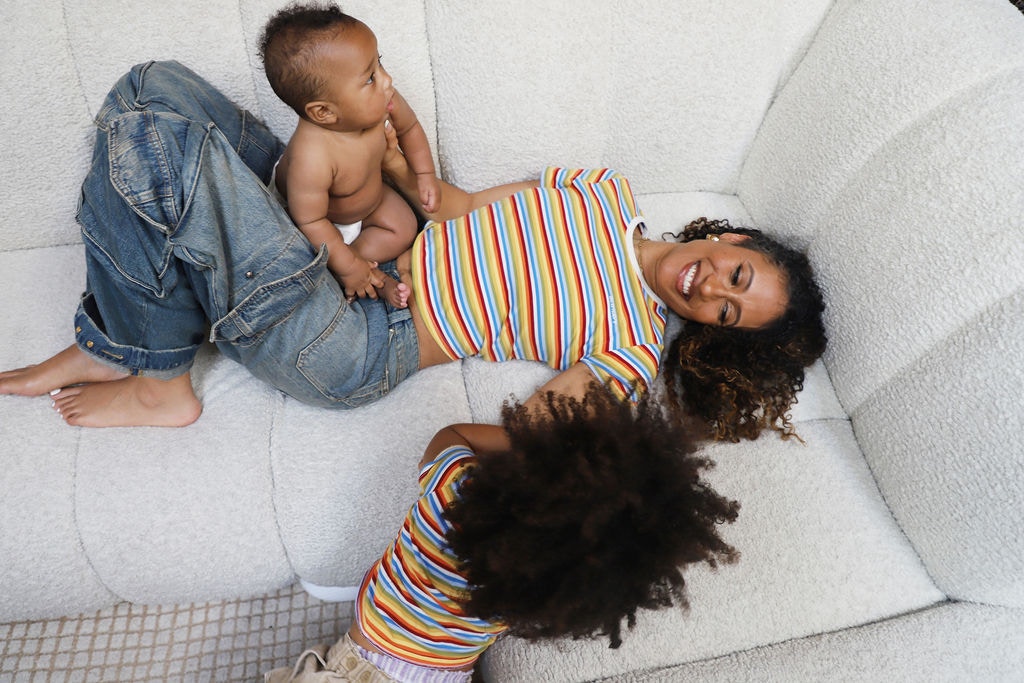
Getting Sticky with Elaine Welteroth
Interview by Erica Chidi, Words by Emily Barasch
Photos by Winter Coleman
Teen Vogue editor-in-chief, host of Project Runway, and New York Times bestselling author Elaine Welteroth wasn’t just at the top of her game—she was the game. But the birth of her first son sparked a reckoning with the discrepancies (to put it mildly) around maternal health, especially as it pertains to black women in this country. Her own positive experience using a midwife made her think: What if more people had access to this?
What she chose to do next with these thoughts is nothing short of remarkable. She harnessed her influence to increase the safety and dignities of pregnancy, birth, and postpartum in a society that doesn’t put much value on either. The idea was to step in where the broken system won’t.
In 2024, Welteroth founded birthFUND a revolutionary organization that matches individual funders with families in need of quality midwifery care and birth support. (Serena Williams, Ayesha Curry, and John Legend came on as early supporters—nbd.) The premise of birthFUND, in a country experiencing a maternal mortality crisis where about half of all women describe their birth as traumatic, is that everyone deserves a safe, joyful, and healthy birth.
Now she’s a mom of two, with a two-year-old and a four-month-old, balancing birthFUND with a wild but delightful family life, a new book, and co-hosting the Met Gala Red Carpet on E!. She digs deep into what made her pursue journalism, the realities of giving birth in this country and what must change, and what productivity loss looks like post-baby.

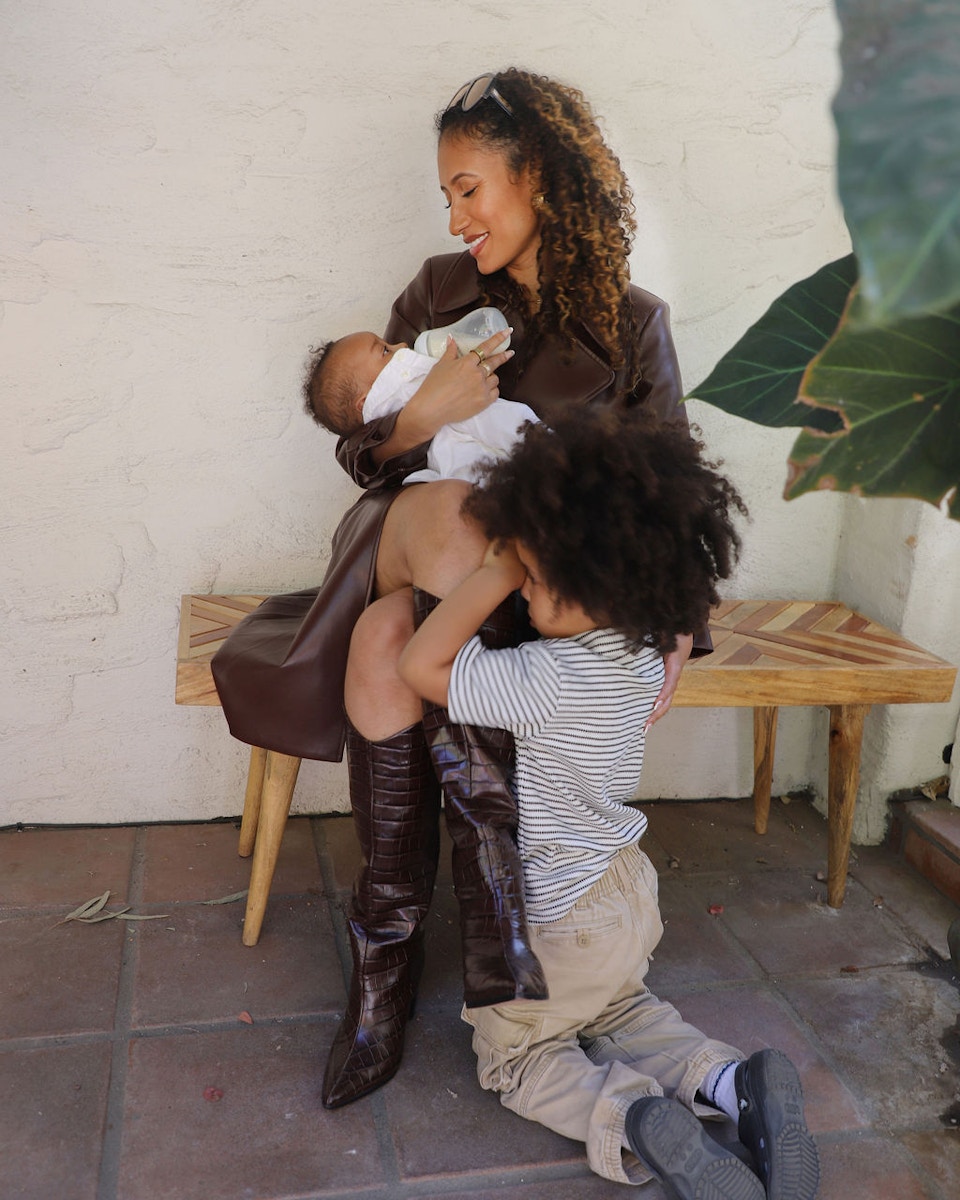
Oprah, the original influencer
I grew up praying at the altar of the Oprah Winfrey Show and much of how I think about storytelling and social impact was formed by the way this black woman commanded space on television for one hour every day. She helped us all approach the world and each other with greater empathy, curiosity, and compassion. She had a way of bridging the divides in our world through storytelling and an ability to bring people together across controversial topics. For me, she was the first influencer, setting the cultural agenda for what we talked and cared about in that era.
As a would-be journalist, I've always been extremely curious and wanted to engage people about topics of interest. Whether that was as a kid just incessantly asking my mom why about anything and everything, driving her crazy or being a college student at the party in the corner basically getting somebody to tell me their whole life story. I'm just always approaching my work and my life with curiosity and I've been like that since I popped out of the womb.
You are more than your job title
As you get older, the journey or the challenge or the real work becomes how to get back to who you were before job titles and the labels that were put on you. There's an inflection point for young girls around age nine, which is the notion that our confidence peaks at age nine and then there's this confidence cliff that we fall off at that point. I think in our later years we're striving to scale that wall and get back to who we were at nine or even younger than that.
As women, especially black women, the bigger we get or the more that we push back against the boxes we've been pushed into or that we place ourselves into, the world constantly asks us to shrink ourselves. It doesn't end when we climb the ranks in the workforce, we're told that we're too much, too difficult, too confident, too powerful. It's intimidating for other people.
The only way to push back against this is to have a counternarrative that we carry within us that tells us in those moments that we already are, we were born, more than enough. It can sound a little bit cliche, but it's a tool and it is how I've navigated so many different spaces and pivots.

"As women, especially black women, the bigger we get or the more that we push back against the boxes we've been pushed into or that we place ourselves into, the world constantly asks us to shrink ourselves."
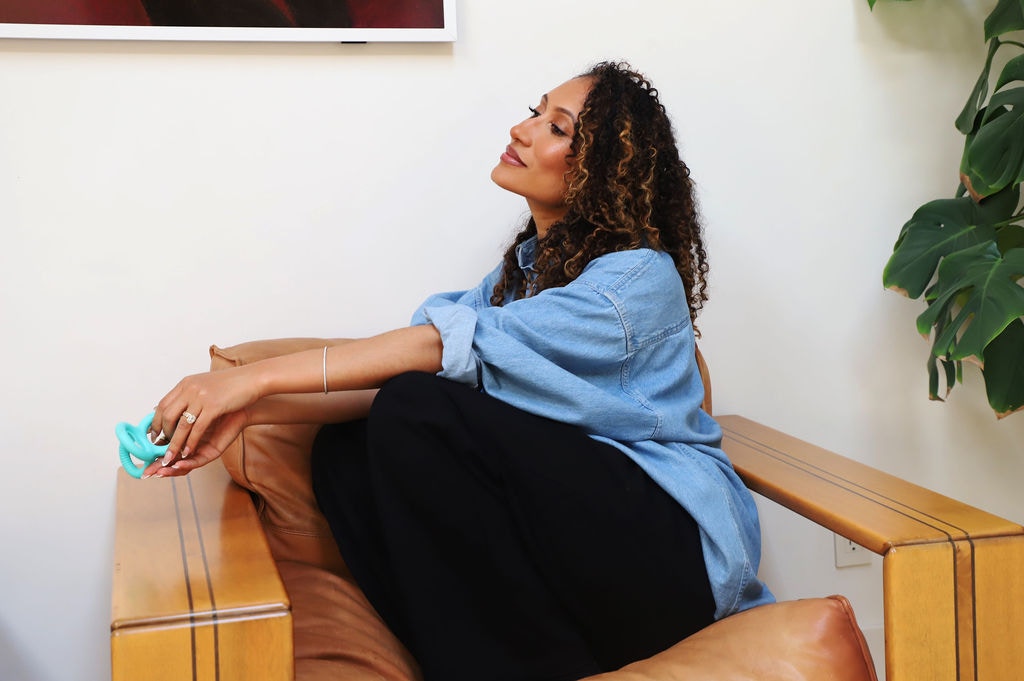
You know what can be sexy? Maternal health. No, really, we mean it.
In addition to [direct impact] fundraising, I see birthFUND as an opportunity for cultural change, a narrative change operation to change the conversation, to open hearts and minds. I've been well-positioned from my experience at Teen Vogue, learning how to make politics and activism sexy to teenagers, especially at a time when they were not sexy topics.
People don't really think of maternal health or women's health for that matter as sexy topics but listen, if we can make politics sexy for teenagers we can make maternal health a sexier conversation for us all. If not sexy, we can make it more of a mainstream household conversation.
The way that the maternal health crisis story has always been told is through scary sad statistics and depressing stories of mothers dying which make people just shut down and want to look away.
So I prefer talking about this through the lens of solutions, joy, and hope and creating an entry point for anyone to get activated around this. I think there's a sea change happening around this conversation when we invite people into it as contributing to the solution.
What’s in a name?
birthFUND was originally called Sacred Birth Fund. I will say there was a corporate partner who shall not be named that said if you call this the Sacred Birth Fund, we will not be able to participate. The word “sacred” is so polarizing and so is birth and so is maternal health and so is women's health. People just don't want to engage. It's like we have to jump through hoops to frame and reframe how we talk about this critical issue area to appeal to the mainstream.
And it felt like such a negotiation within myself. Do I concede or do I hold firm because birth is sacred and so is community, women's bodies, and this movement. But then Beyoncé was coming out with her hairline Cécred. And so I was like, "Okay, I'll take the L. I'll let Beyonce have ‘sacred.’“ [Laughs.]
I love the idea of leaning into the word “fund” and this idea that you're investing in a movement, that you're investing in families in real time, and the return on investment is a healthy empowered woman and a safe baby who's born into the world in safety and dignity.

"The way that the maternal health crisis story has always been told is through scary sad statistics and depressing stories of mothers dying which make people just shut down and want to look away. So I prefer talking about this through the lens of solutions, joy, and hope and creating an entry point for anyone to get activated around this."

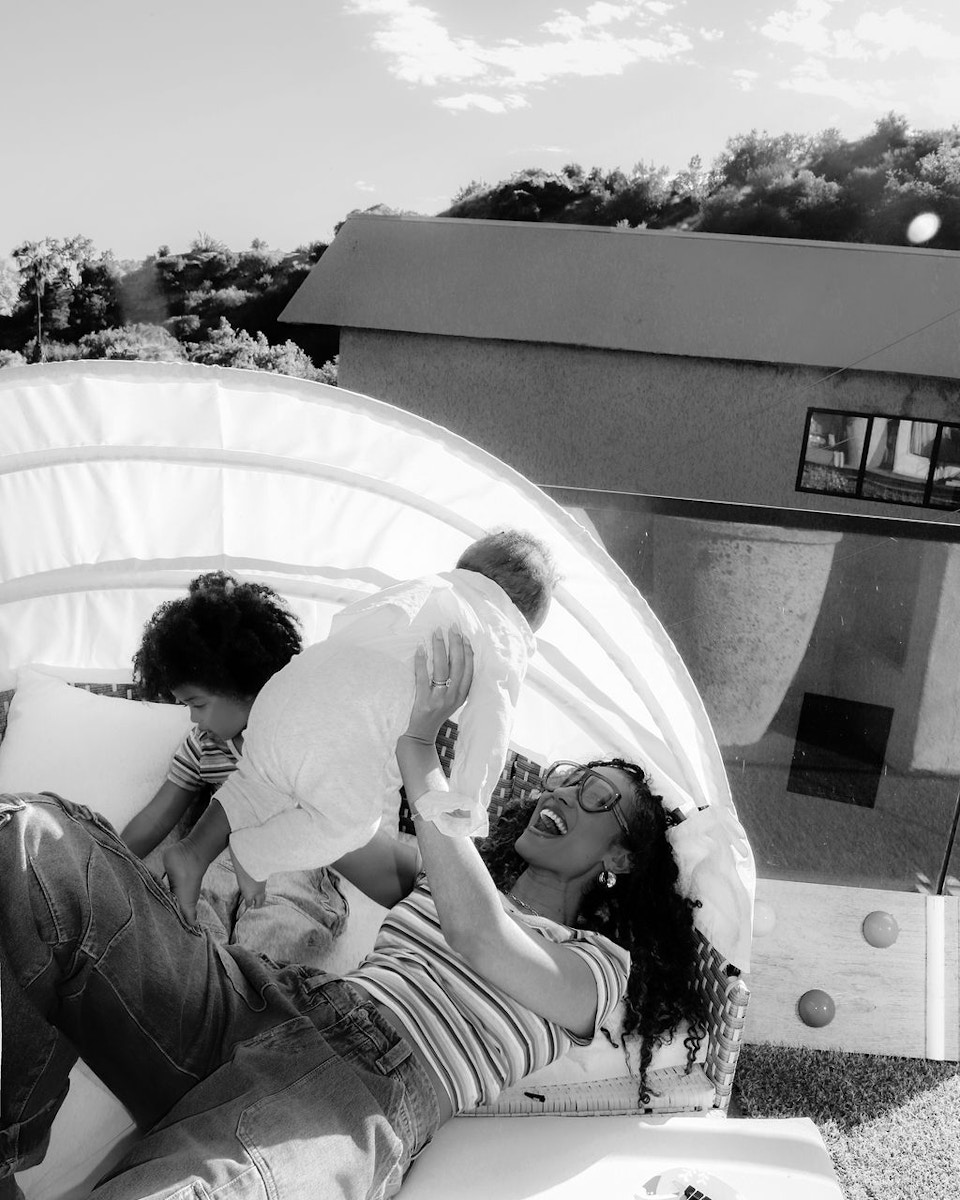
A solvable crisis
It's about funding solutions and in real time. It's about addressing a solvable crisis that's robbing families and communities of their mothers. It's about not waiting for systems to change, not waiting for laws to change, not waiting for someone else to address this critical urgent issue.
It's about seeing an entry point. It's about a call to action that meets people where they're at, whether they are a working class family who have experienced the underbelly of the medical system. and who have themselves been subject to nearly becoming a statistic during or after childbirth and empowering them with one way to affect change around this issue area.
It's a way to put your money where your values are. There are so many incredible organizations and organizers that have been focused on this issue area for decades. The unfortunate reality is many of them are relegated to the margins of society. There's an opportunity here in this movement, with birthFUND, to mainstream midwifery as one critical solution that we can all be investing in. Part of how we do that work of mainstreaming what has been misrepresented as a fringe movement is by leveraging culture shifters and engaging them by getting them talking about this.
So whether you're Serena Williams and Alexis Ohanian who have experienced this issue directly and have the capacity to give to raise money and invest in healthy safe dignified births for families all across the country or you're somebody right here in South L.A. who lives in the inner city and has also experienced this, or heard stories about this, and you want to get activated. This movement meets you where you're at.
"It's about funding solutions and in real time. It's about addressing a solvable crisis that's robbing families and communities of their mothers."

Data-backed solutions worth investing in
In times like this, where we are all being barraged with bad news, there is such a strong temptation to just escape into escapism, to disconnect. Sometimes we can just feel we're in a state of paralysis where we don't know what to do, so we do nothing. This call to action is straightforward enough that it kind of cuts through the noise and invites people into just one small act that can have a really big impact for people across the country.
Our whole organization was built around this statistic that 80 percent of the maternal deaths in this country could be averted with midwifery care as one part of one solution. It's a very complex issue but midwifery is one data-backed solution that we can be investing in.
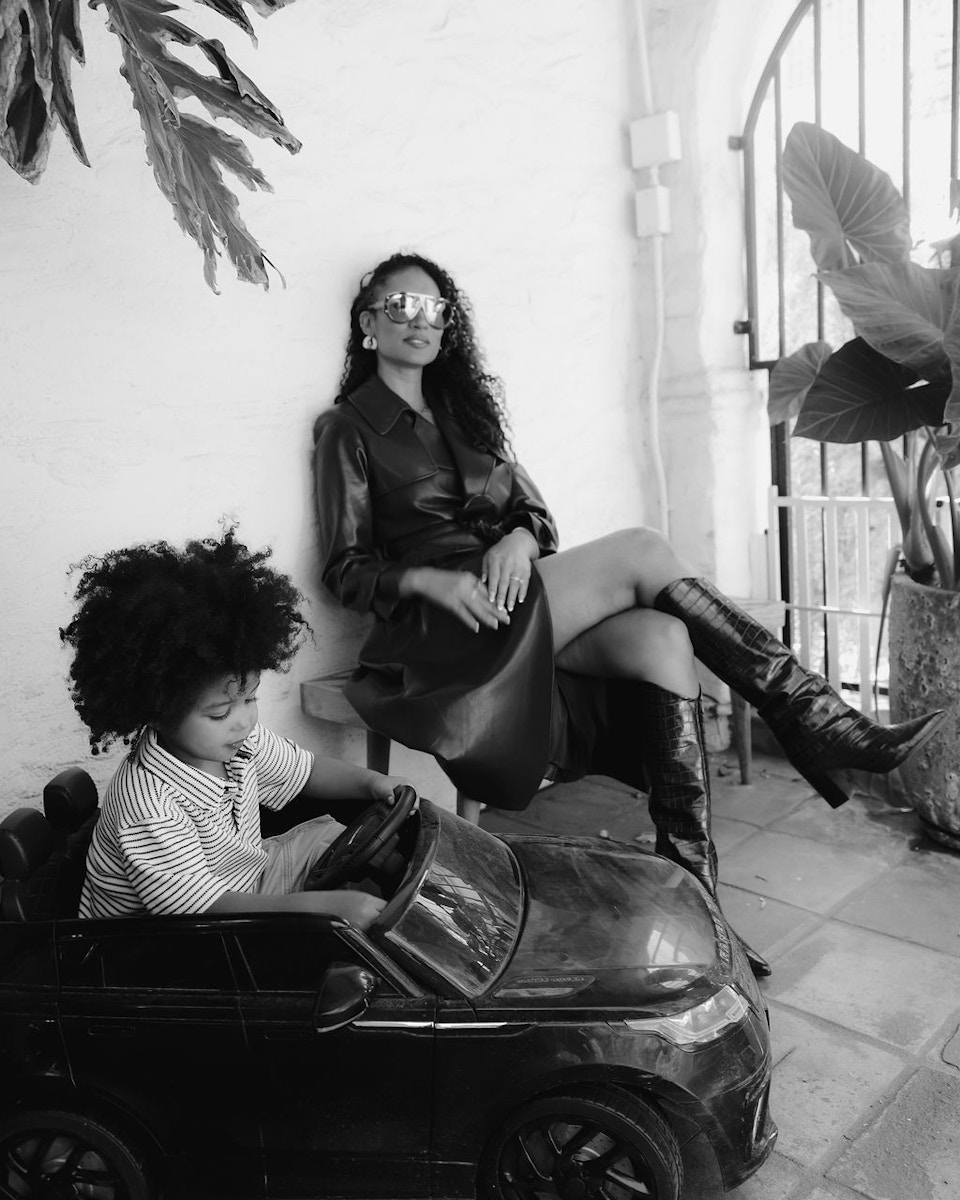
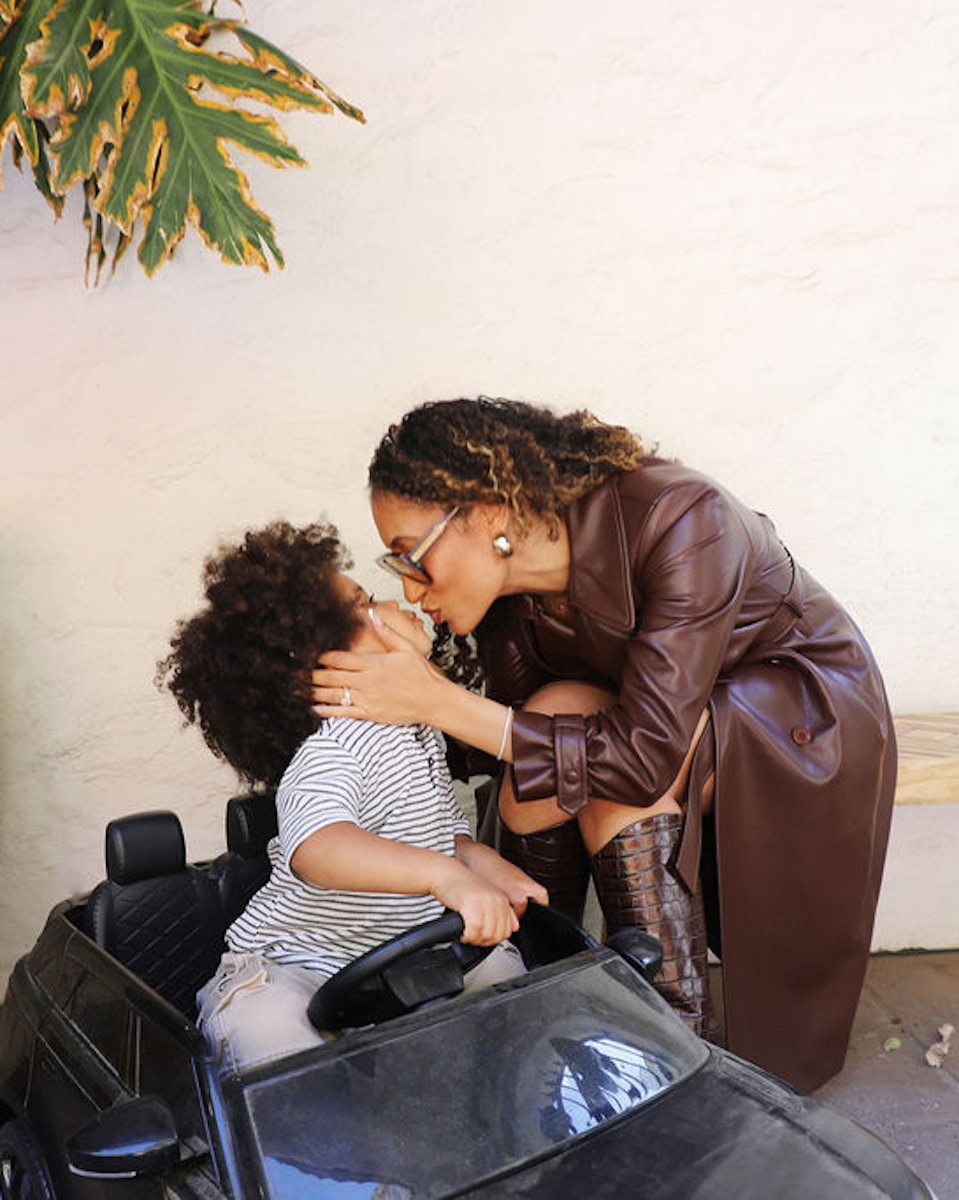
Why we should mainstream midwifery
We will always be focused on this core mission of funding families in real time, removing financial barriers to centered care for birthing people. But I also am excited about the ways that we can expand our footprint and address one of the pipeline problems by funding the next generation of midwives. My dream for birthFUND is that we can find enough funding to kick off a midwifery scholarship program because we know that there are too many financial barriers to becoming a midwife, especially in this country where there is so much red tape and it's still outlawed in some states which is wild.
So while we do the work of mainstreaming midwifery and creating more demand for midwifery, we also have to address that it's not meeting the demand even today. Only 12 percent of births are attended by midwives. We want to increase that number by addressing the financial barriers to becoming a midwife or a community birth worker.
Fact: The bar is on the floor
None of us benefit from mothers dying during and after child birth. None of us as a society. What we know is with the reversal of reproductive rights, more women are being forced into motherhood before they're ready and therefore being forced into a broken maternal health care system, which is going to result in a surge of maternal deaths if we don't intervene in a proactive way.
There's so much opportunity to think about how we can improve the systems that support or don't support women today. We also have to talk about birth trauma because more than half of women and birthing people today describe their birth as traumatic and there's a direct connection between birth trauma and postpartum depression and even postpartum suicide. Saving the lives of mothers is almost too low of a bar to set when we talk about measuring success around this issue.

"With the reversal of reproductive rights, more women are being forced into motherhood before they're ready and therefore being forced into a broken maternal health care system, which is going to result in a surge of maternal deaths if we don't intervene in a proactive way. "
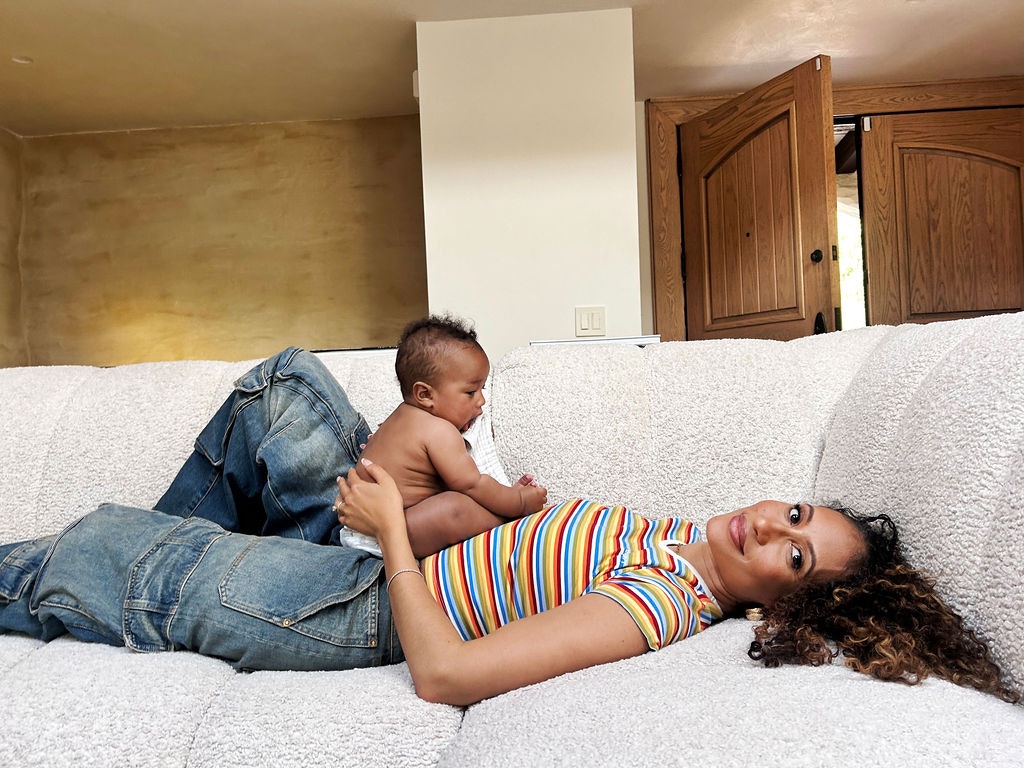
…and then there were four
I'm only four months deep into the game, but I will say it has been a more challenging transition than I anticipated in a number of ways. But I feel like things are starting to level out. It's a beautiful chaotic new reality to wake up every day and remember that I'm responsible for two whole human beings— to be able to discover who they are every day and to be reminded that they are individual souls that came here with their own purpose and personality. I feel like every day I'm just discovering more and more of who they are.
I have an incredibly supportive partner. Thank God for Jonathan. I would not be able to do half of what I do without him. He's an outstanding dad and partner. I also have an incredibly supportive mother who was here with me for three months — the last month of my pregnancy and the first two months postpartum. She did that for my first and second baby. So thank God for her.
It takes (building) a village
During my pregnancy, I really dug in trying to understand all the things no one ever taught us about what it takes to bring a baby into the world. During that kind of research project, I started my IG live series MaterniTea. It opened my eyes to things like the 40-Day Rule which is the idea that the first 40 days after giving birth are critical for a woman's long-term health outcomes. I read the book, The First Forty Days. I talked to experts about it. So then I was able to advocate for myself and educate my support system about how to best support me.
They were so game. It became a family project. My mom was making sure I was eating the soups. Everyone made sure I was well hydrated. They made sure I really felt cared for. And so much of that was a trickle down effect from having chosen midwives as my care providers because they educated me and educated my whole village about how to support a pregnant and postpartum person because the schools don't teach us this. Work ain't going to teach it. Who else is going to teach us?
One of the best parts of having a midwife is that they become your partner in birth from the beginning to the end. I hand–selected these incredible black midwives who became my birth angels and they knitted this web of support around me. I felt really held and even so, it was challenging emotionally and energetically.
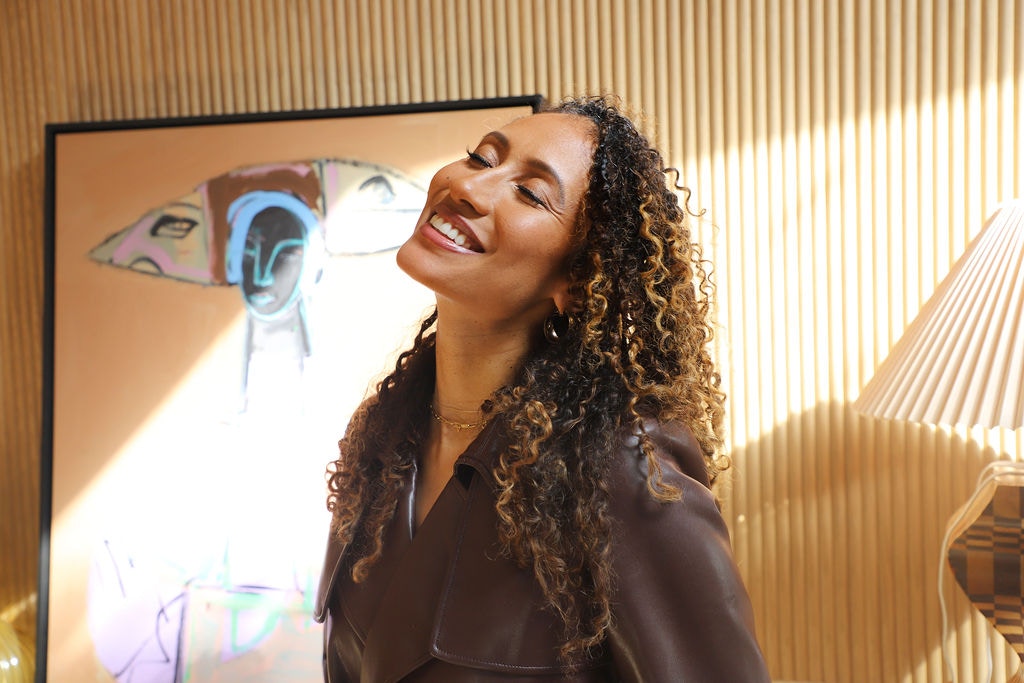
Recovery is not just physical, and bounceback culture is a scam
I identify in the world as somebody who is very productive, who has a lot of energy to do, to show up, to create, and to motivate others. I found it incredibly humbling in my first pregnancy and then in my second postpartum period to feel like I possessed none of that. I struggled to find motivation and energy. I felt really just truly depleted, just depleted, and for a longer time than I was prepared for.
As a creative entrepreneur launching an organization addressing maternal health in the birth space, I needed to practice the values that I preach. I felt compelled to give myself maternity leave and I know that that is a privileged position to be in to be able to do. But even so I didn't know how much time to give myself.
I acknowledge I still have to fight against the bounceback culture. It's not necessarily physical. I don't put that physical pressure on myself as in I don't subscribe to the bounceback philosophy as it relates to my body. But I absolutely felt that pressure and expectations around productivity to bounce back into the productive person that I know myself to be. I could cry right now because that was really hard. I'm so glad that this interview is happening today and not a month ago because I was still struggling.
I used to be able to run circles around anybody. But what happens when you can't hold up the world anymore because you're barely keeping it together yourself? Emotionally and energetically, the transition has been more challenging than I thought even with all the support in the world. It really just honestly refuels me around why we are doing this work for families across the country who have far less support than I do.

"But what happens when you can't hold up the world anymore because you're barely keeping it together yourself?"

“It's totally fucking uncomfortable”
People don't tell you when you're weaning yourself off of breastfeeding that there's a huge hormonal cliff that you drop off of after you stop, when you're supposed to go back to work. Nobody talks about how hard that is. So while my calendar said okay it's time to go back to work, my body was like no. It was the hardest part for me. But I do feel myself coming back. Well I don't want to say “back” because the evolution is forward moving.
They always say when you're giving birth to a baby, you're giving birth to a new version of yourself. I try to remind myself to give myself permission to be a new version of myself. It's okay for productivity to look different. It's okay for my pace to look different. It's okay for me to be more decisive about how I spend my time. It's okay to be more emphatic about my needs. It's okay to listen to my body.
When I don't have the energy, it means I need to say no. It means I need to slow down. I'm building a more intimate relationship with my body through motherhood. I'm learning how to take care of myself for the first time in my whole life through parenthood.
Becoming pregnant was the very first time, if I'm being honest, that I really was forced to embrace and was confronted by the concept of self-care in a true sense. Truly checking in with myself and asking myself moment-to-moment, day-to-day: What do you need? And that's a dialogue I never had with myself. I just never really thought about what I need. Now I realize the beauty of finally maybe for the first time touching the limits of my capacity. As humbling as it is, that's an ongoing lesson that I'm taking from motherhood.
I think I will be a better person: mother, wife, friend, founder, professional for it, but it doesn't mean that it's easy and it doesn't mean that it's totally comfortable. It's totally fucking uncomfortable.
